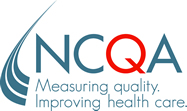August 14, 2018

Centers for Medicare & Medicaid Services
P.O. Box 8013,
Baltimore, MD 21244-8013.
Attention: CMS-1720-NC
Thank you for your Request for Information on how to address the burden of the Ethics in Patient Referral Act of 1989, commonly known as the as the Stark self-referral law.
The National Committee for Quality Assurance (NCQA) strongly supports the nationwide movement to reward value rather than volume in our health care system. We thus focus our comments on the law’s impact on integrated delivery models, alternative payment models, and other arrangements designed to incentivize improvements in outcomes and reductions in cost.
Congress enacted Stark when fee-for-service was overwhelmingly the dominant payment model and selfreferral could engender fraud, waste, abuse as well as patient harm. We appreciate the many concerns providers have on the law’s current often challenging application to fee-for-service arrangements. However, given broad consensus on the urgent need to move away from such legacy arrangements, we urge you to focus on application to more current and emerging models likely to dominate in the near future and beyond.
Stark simply does not make sense when applied to accountable care organizations (ACOs), bundled payment arrangements and other emerging alternative payment models (APMs) that place clinicians and other providers at financial risk for the cost of care. Coordination within integrated delivery networks is essential for the success of these models. Self-referral does not threaten program integrity because fraud, waste or abuse in these models has a direct, negative impact on shared financial risk.
Existing Stark waivers for two-sided financial risk ACOs are thus appropriate models for other APMs that should qualify for such waivers unless they fail minimum two-sided financial risk thresholds or pose other risks. You should consider such waiver exceptions on a case-by-case basis for each proposed APM and monitor them over time for any unintended consequences. Bundled payment models, for example, continue to pose a gaming threat because providers could simply increase the number of bundles by delivering them to patients who may not need the services. For bundled models, the waiver should apply only to cases that meet consensus and evidence-based appropriateness criteria. Similarly, one-sided risk models may lack sufficient value-based incentives to counteract potential financial benefits of questionable self-referral and their waivers warrant close monitoring.
Thank you again for inviting comments on this important issue. If you have any questions, please contact NCQA Director of Federal Affairs Paul Cotton at (202) 955-5162 or cotton@ncqa.org.
Sincerely,
Margaret E. O’Kane
President
